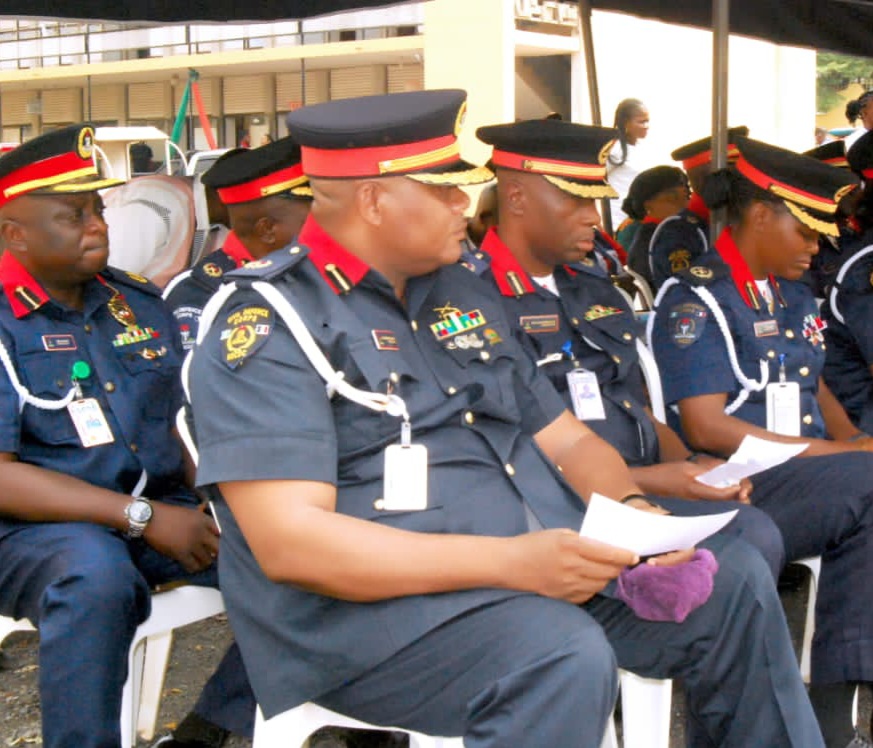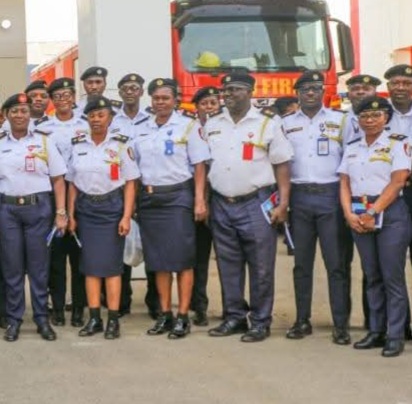
Pix: Chief of Air Staff, Air Marshal Hassan Abubakar
By Isiaka Mustapha, CEO/Editor-in-Chief, People’s Security Monitor
In a country that has endured years of violent insurgency, the recent airstrikes carried out by the Nigerian Air Force (NAF) in the Mandara Mountains of Borno State has signified a major turning point in the nation’s fight against terrorism. Executed on Sunday, July 6, 2025,
under Operation Hadin Kai, the well-coordinated strikes targeted and dismantled Boko Haram strongholds that had long served as safe havens
for senior militant commanders.
This operation once again highlights the NAF’s crucial role in safeguarding Nigeria’s territorial integrity and ensuring internal stability. The success of these missions not only justifies the substantial financial investments made in the Air Force but also reinforces its standing as a cornerstone of national security.
This mission was far from a random display of military might; it was a meticulously coordinated, intelligence-driven operation. The airstrikes were guided by extensive surveillance, reconnaissance, and data collection leveraging drone imagery and signal intelligence. For years, the rugged terrain of the Mandara Mountains has given insurgents a strategic advantage, enabling them to evade ground forces and carry out cross-border attacks. However, this latest assault by the Nigerian Air Force (NAF) shattered the illusion of safety that
these terrorists once enjoyed. Dozens of fighters were neutralized, and critical infrastructure including command centers, fortified hideouts, and weapons depots were destroyed.
A significant portion of the credit for this achievement goes to the Chief of Air Staff, Air Marshal Hassan Abubakar. Since assuming office
in 2023, he has spearheaded a major overhaul of the Nigerian Air Force’s operational approach and effectiveness. His leadership has prioritized the deployment of precision airpower, enhanced
inter-agency collaboration, and the integration of cutting-edge technologies such as Unmanned Aerial Vehicles (UAVs). As a result, the
NAF has evolved from conducting broad, indiscriminate bombardments to executing precise, intelligence-led missions that minimize civilian casualties. These developments represent more than just tactical progress; they signify a profound transformation that is now delivering tangible results.
The Air Force’s impact on national security is considerable, and the substantial financial investment in its operations has proven
worthwhile. In 2024 alone, the government allocated over billions of naira to the NAF, funding everything from new aircraft acquisitions
and advanced equipment to personnel training, infrastructure development, and technological upgrades. While such a sum may seem
excessive to the average Nigerian, the outcomes particularly in suppressing terrorism in the North-East has clearly demonstrated that this funding is not only justified but essential.
Today, the Nigerian Air Force (NAF) boasts a formidable fleet that includes A-29 Super Tucano light attack aircraft, JF-17 Thunder multirole jets, Wing Loong and CH-3 drones, as well as domestically developed platforms like the Tsaigumi UAV and upgraded Alpha Jets.
These assets are being deployed with greater precision and effectiveness than ever before, thanks to improvements in training, strategy, and logistical support.
The Air Force’s Intelligence, Surveillance, and Reconnaissance (ISR) capabilities are now delivering real-time data that directly informs
battlefield decisions. According to the Ministry of Defence’s 2025 Q1 report, nearly 70% of all successful anti-terrorist operations in the
North-East over the past year involved significant contributions from the Air Force.
Beyond the battlefield, the impact of these efforts is being felt by everyday Nigerians. Residents of Bama, Gwoza, Konduga, and other towns
in Borno State have reported a marked reduction in terrorist incursions, ambushes, and night-time raids. With the skies under constant surveillance and active patrol, Boko Haram’s once unchecked
movements have been severely constrained. For these communities, the Nigerian Air Force is more than just a military institution; it is a
guardian of peace, a protector of lives, and a symbol of national resilience.
Yet, despite these accomplishments, the Nigerian Air Force often remains underappreciated in national discourse. While the Army is frequently viewed as the face of internal security, it is the Air Force that has provided the critical edge in many counterinsurgency victories in recent years. From air interdictions to close air support and rapid troop deployment, the NAF has consistently delivered where it matters most.
It is therefore both fitting and necessary to commend Air Marshal Abubakar and the entire Nigerian Air Force for their exceptional service. They have demonstrated remarkable courage and professionalism in confronting a deadly threat and have shown that, with the right leadership, resources, and strategic direction, the Nigerian military can achieve measurable success in the fight against terrorism.
The recent airstrikes in Borno State stand as compelling evidence that Nigeria is far from helpless in its battle against insurgency.
When equipped and supported adequately, our armed forces are capable of disrupting, dismantling, and defeating even the most entrenched terrorist networks. The billions of naira invested in the Air Force are yielding real dividends in safety, stability, and national morale.
In this moment of hard-won progress, as we honour the sacrifices of those who have laid down their lives, we must also raise our voices in appreciation of those who continue to safeguard our skies. The Nigerian Air Force has earned not only our gratitude but also our lasting support and recognition.
They deserve our salute.
They deserve our respect.
They deserve our continued investment.
The Nigerian Air Force deserves our commendation.






